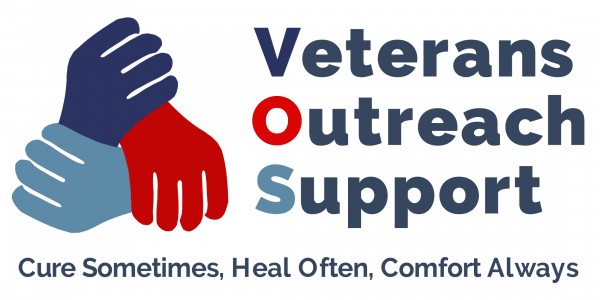King Edward VII Hospital – Centre for Veterans Health
We Understand Chronic Pain
We, at King Edward VII’s Hospital understand the immense distress and suffering that persistent pain can cause; as much as being physiological, pain can also seriously affect thoughts and emotions, which in turn feeds back into the pain system. Thus, persistent pain often adversely impacts on relationships, work, hobbies, interests and other activities, as well as mood and overall wellbeing. As a consequence, those suffering from chronic pain often find themselves feeling helpless and lacking the confidence to continue with previously meaningful activities.
What is a Pain Management Programme?
Pain management programmes are widely recognised as the treatment of choice for individuals suffering with persistent pain. The clinical staff of the Pain Management Programme for Veterans (PMP) at King Edward VII’s Hospital are leaders in the field of pain management, with years of experience of helping people with persistent pain to improve the quality of their lives.
Highlights of the PMP at King Edward VII’s Hospital:
- Our approach is interdisciplinary (combining knowledge coming from different fields of science) which allows us to better address the complex nature of your condition and give you the tools to deal more effectively with both its physical and psychological aspects;
- We know that not understanding what is happening in your body can magnify the feeling of pain as well as all the negative emotions associated with it. As a part of the programme we will help you develop a greater understanding of your condition. For example, we will dedicate time to explain you the changes it produces in your nervous system and the differences between acute (short-lived) and chronic pain (which persists beyond the point of healing);
- We know that suffering from constant pain can feel very isolating and confusing. Thus, our programme has been designed to not only offer you a wide range of pain management strategies but to also provide a support group – the group setting of the course allows you to share your experiences and gain insights from the other participants in the programme who also suffer from chronic pain;
- We provide our programme free of charge to anyone who has served in the UK Armed Forces;
How Can it Help Me?
The main objectives of the pain management programme are to help individuals improve their mood and quality of life, increase their self-management ability and involvement in meaningful activities, as well as promoting a better understanding of their condition. A reduction in the intensity of the pain over time is not uncommon, although as stated above the primary goal of the programme is to help individuals engage in more meaningful activities and feel less controlled by their chronic pain.
Specifically, the pain management programme is designed to help you to:
- Start, return to or increase meaningful activities in day to day life and expand your horizon;
- Increase confidence to try new activities/hobbies, minimising the impact of pain on lifestyle;
- Reduce the psychological effect of chronic pain such as distress, anger, fear or sadness;
- Understand pain, its science and how to use this to manage it more successfully;
- Increase awareness of physical movement, fitness and exercise;
- Identify goals concerning meaningful employment where possible, using strategies gained during the programme;
- A patient-tailored medication review and reduction to ensure that the medication and dose you take is appropriate for your particular type of chronic pain;
Contents of the Programme:
As explained above the complexity of persistent pain makes interdisciplinary involvement (combining knowledge coming from different fields of science) essential as pain impacts on so many different areas of your life.
Our Pain Management Programme for veterans addresses:
- Information/education – to provide individuals with information about pain (both acute and chronic), muscles, joints, the central nervous system and nerves, the brain (central sensitisation, neuro-plasticity) etc. so that they develop a clear understanding of the complicated but explainable changes which lead to the development of chronic pain.
- Goal setting – to help individuals identify meaningful goals they would like to achieve and how to approach these in a sustained manner.
- Practice of goals and activities – to establish a pattern of regular practice and experimenting with new activities and situations while managing pain. This will allow people with pain to discuss and review how their condition feels and what actually happens.
- Desensitisation – to teach individuals specific exercises that are aimed to help affected areas feel less sensitive and thus, to normalise changes in the brain due to persistent pain.
- Mood – to introduce strategies to manage negative changes in mood and distress caused by their chronic pain based on Cognitive-Behavioural Therapy (CBT) principles.
- Thoughts and feelings – to help participants understand their thoughts, beliefs and feelings in relation to pain and its impact on their lifestyle and quality of life.
- Medication reduction – to provide individuals with information about the roles and effects of medication, how they can best be taken and when they are most helpful. Individual advice will be given regarding medication reduction, and support provided for this process.
- Sleep hygiene – to introduce strategies aimed at improving sleep patterns and assist patients to make positive changes to their existing sleep routines with the aim of improving overall sleep experience.
- Relaxation strategies – to introduce relaxation strategies that would be a useful tool in the management of the pain-tension cycle.
- Return to gainful employment – to teach individuals strategies to help them manage pain more successfully with an end goal that they can start considering employment options.
*Specific group requirements
Other aspects that can be discussed depending on the needs of the specific group. This can include, relationships with others, intimate relationships, PTSD, working with other clinicians.
What the PMP is Not:
- The PMP is not an individual psychotherapy or a group therapy programme. You will not be asked to share your thoughts and experience unless you want to;
- The PMP is not a PTSD group and we are very mindful not to raise any issues in relation to PTSD during the group and the focus throughout remains focused upon pain management;
- The PMP does not include hands-on treatment and physiotherapy;
- Those attending are not required to wear any specific clothing and the physiotherapy does not involve going to a gym;
Duration of the Programme:
Compared to how long you have been suffering from pain and its impact on your wellbeing, the course is brief. The essence of successful pain management is your active participation, as well as applying the various strategies, learned throughout the course, to your everyday activities.
The PMP involves several components:
- A 5-day residential course;
- 5 additional follow-up days during the year;
We believe that the involvement of your support network is vital for the success of any therapy. Therefore, your family and friends are invited to attend one of the days scheduled halfway through the programme, which will give you extra confidence and help you gain the most from the course.
Am I Suitable for the Programme?
Yes, if you fulfil the following:
- You have been suffering from persistent pain;
- You are motivated to actively engage in a group-based pain management programme;
- You are able to travel to London (all expenses will be covered);
- If suffering from PTSD, your condition is mild to moderate;
Who is this Programme not Suitable for?
The programme is not suitable if:
- You are incapable of self–care because of a mental or physical disability;
- You are actively suicidal;
- You have a violent/aggressive behaviour;
- You find group environments challenging;
- You are awaiting or planning surgery in the near future;
- You are currently enrolled in another pain treatment programme elsewhere (e.g. physiotherapy, nerve blocks, etc.);
How do I take part?
You will need to:
- Contact the Coordinator of the Centre for Veterans Health at King Edward VII’s Hospital via email janetaylor@kingedwardvii.co.uk or telephone 020 7467 4348 to express your interest in taking part;
- Attend an initial assessment appointment (appr 2-3 hours) to determine your suitability for the programme;
- If successful, you will be invited to take part in a 5-day residential programme in London;

















